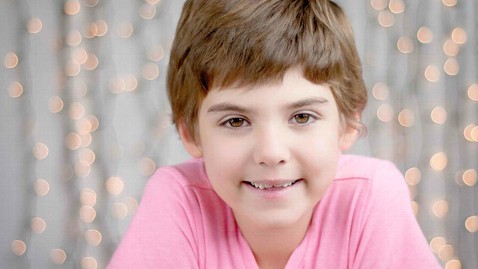Doctors Find Success Using Retooled HIV to Fight Leukemia

Image credit: Christine Chardo Photography for The Tiny Sparrow Foundation
By Ann Reynolds:
In April, Emma Brooke Whitehead's leukemia seemed unbeatable.
Emma, a 6-year-old from Phillipsburg, Pa., had been fighting the disease for nearly two years and doctors at Children's Hospital of Philadelphia said there were no standard treatments left. So they took a gamble on a new, potentially groundbreaking treatment - using HIV.
They removed millions of Emma's disease-fighting white blood cells and used genetically altered HIV - a virus that easily gets into human immune systems - to turn Emma's cells into a kind of immunological "directed missile," specifically programmed to destroy the leukemia cells. The cells were then returned to Emma's body.
"All of the things that make the HIV virus able to cause disease have been removed from this particular virus whose only purpose is to put a gene into a cell," said Dr. Stephan Grupp, a pediatric oncologist at CHOP who uses HIV to infiltrate the immune system. "There is no danger of infection and there is no longer the HIV virus."
Kari Whitehead, Emma's mother, said that initially after the treatment Emma became very ill - she had a fever as high as 105 degrees - and doctors warned the family that she might not make it through the night.
Grupp then gave the second grader a rheumatoid arthritis drug "off label." In arthritis, the drug was meant to block a specific part of the body's immune reaction, part caused by white blood cells called T cells. In Emma's case, it blocked the side effect of the cancer treatment. In just 12 hours, she stabilized.
"She was the first child in the world they tried it on and they told us they didn't know what to expect," Whitehead told ABC News. "They do feel now that the arthritis drug that they used will keep the kids in the future from getting any where close to that [sick]."
Grupp says that Emma, now eight months past her treatment, is in complete remission.
"She has no leukemia in her body for any test that we can do - even the most sensitive tests," he said. "We need to see that the remission goes on for a couple of years before we think about whether she is cured or not. It is too soon to say."
He said that the treatment is being tried experimentally at two hospitals and was intended for childhood leukemia that has returned and no longer responds to chemotherapy. He said doctors hoped the T cell treatment would eventually replace bone marrow transplants.
"This treatment was really her [Emma's] only chance," Grupp said. "She has been treated with extended chemotherapy and she wasn't getting any better. … For me, it's incredible."
Whitehead said Emma, now 7, looked and felt "amazing" and had reunited with her dog Lucy.
"There is a big difference," she said. "She has a ton of energy. She's back with her class. She was even able to play a little bit of soccer. So she's doing wonderful right now."